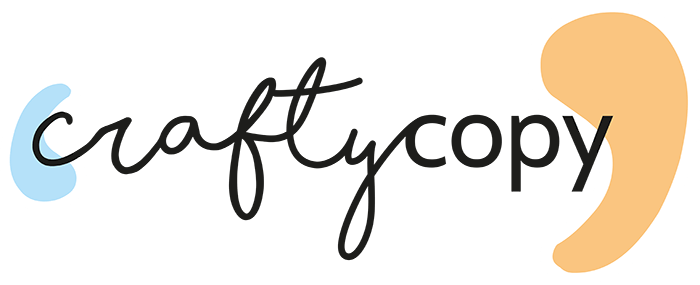How Long Should Your Web Pages Be? (Size Matters!)
You’re probably wondering how long should a web page be so that it can rank higher on Google, but here’s the thing: the optimal web page length for your business website shouldn’t be just about SEO.
Let me show you what you should focus on for the best results and conversions.
Understanding optimal web page lengths
From your home to landing pages and your contact section, here’s what to consider when writing your website copy.
How long should a web page be for SEO?
Take if from a professional website copywriter: when it comes to SEO, a web page should be at least 300 words long.
This is because Google tends to classify anything below that word count as ‘thin’ or ‘low-quality’ content.
Think about it: whenever a user types a keyword or some kind of query (e.g. in our case ‘how long should a web page be?’), this search engine wants them to find the best possible answer.
Can that really be given in less than 300 words?
Unlikely.
If, instead of the blog post that you’re reading right now, I had written a couple of paragraphs telling you to aim for at least 300 words, I would not have given you a good enough answer.
Why? Because there’s so much more to take into account!
Google knows this. So, if you try and get away with 150 words or so while most of your competitors dish out 600, 1000, or +2000 word pages, Google is not gonna trust your answer.
“On average, web pages reaching Google’s top results have 1,890 words.”
So, does this mean that the longer the better when it comes to web page length?
Actually, no.
Focus on VALUE over fluff or strict word counts!
While 300 words is an important starting point, you should always focus on writing copy that serves the specific purpose of that web page on your business website.
Because this varies, there isn’t a one-size-fits-all answer for web page length.
There is absolutely no point in stuffing your web pages with useless or repetitive sections, nor using twenty words when four could do just so you can obtain a longer word count.
No point.
You’re just going to bore or scare your readers away… and that will backfire from an SEO point of view too. If too many visitors abandon your website too quickly, you’ll end up with a high bounce rate, and Google doesn’t like that.
“So, the most important thing is to write copy that serves the specific purpose of that page. ”
And let’s be realistic: from your home to your About or a Sustainability page, that will be over 300 words. Even if you’re not actively striving for that number.
A popular exception is the Contact page: I mean, do you really have that much to say by that point, other than a couple of paragraphs that further encourage your visitors to get in touch?
I doubt it.
I mean, if you do, that’s great. But, if you don’t, don’t worry: having one or two pages that are shorter than 300 words isn’t going to penalise you on Google.
Just as long as your core pages (e.g. home, about, services, etc.) are a bit longer.
How long should a landing page be?
There’s no right length for sales or landing pages. However, while they should still be at least 300 words (like other standard pages) from an SEO point of view, it’s only logical to have much longer landing pages.
Why?
Because they must be optimised for conversions and move your visitors aaaaaall the way down the funnel.
Can you really do that in 300 words?
Maybe, if those who find your landing page are already towards the bottom of the sales funnel.
In most cases, however, the answer is a big fat NO.
“My rule of thumb is: the more you’re asking of your visitors, the longer your landing or sales page should be.”
Are you asking them to give you their email address in exchange for a free ebook? That’s not a big commitment, so a fairly short landing page will do.
Are you asking them to invest thousands of pounds into your high-ticket programme? Then your landing page will need to be waaaaaaaaay longer.
Not for SEO reasons, but simply because… well, you must convince these people to part with thousands of pounds!
And, for this to happen, you’ll need to:
agitate their current pain points
tackle all of their most common worries and potential objections
show social proof
paint an irresistible picture of what their reality will look like once they’ve invested in your products or services
Basically, you need more words.
Best practices when it comes to web page length
While I always recommend remembering that magic number (a minimum of 300 words), here’s what you should actually focus on when writing copy for your business website.
1. Write excellent copy where EVERY. WORD. MATTERS.
Here’s the thing: when it comes to word counts, best practices change, and people have more opinions than on the Game of Thrones finale.
For real.
While 300 words is a consistent number since it’s one of Google’s ranking factors, you’ll find blog posts telling you to only publish content over 1000 words.
No, actually, 1500.
No, wait! +2500.
Honestly? Forget about all that.
“The way you talk about your business and bring your dream customers into your brand story is what matters the most.”
So, focus on strategic website copy that grabs your audience’s attention, show them why you’re the best at what you do, proves how your products or services can benefit them, and helps them move down the funnel.
That’s it.
Don’t get too hung up on specific word counts!
2. Make your above-the-fold copy unmissable
Regardless of how long a web page should be and all that, let’s be realistic: nobody will read the entire thing if the first part doesn’t hook them in.
Your above-the-fold content consists of everything that your website visitors can see before they scroll down.
Its aim is to convince them to stick around and read the rest, which is why it’s the most important part of your page. No wonder users spend over half of their page-viewing time above the fold!
For example, when it comes to your home page, your above-the-fold copy should convey:
Exactly what you do
For whom
Why that matters/how it benefits your target audience
3. Use headings
Nobody likes a page full of lines and lines of text in the exact same size!
You need to use headings to help your readers read or skim your page without getting put off by a huge wall of text.
Plus, headings are excellent for SEO, too: they’re ideal to create a hierarchical structure and use your keywords strategically.
4. Break up your text even further
Headings aren’t the only way to break up your text.
For example, to further facilitate readability you could use:
Bullet points (how meta!)
Different sections
Images
CTA buttons
No matter how long your web pages are, using these tricks (together with the right copy, of course) will help readers stick around and take action.
Grab the right words for your female-founded business website
Now that you know how long web pages should be (and why it doesn’t always matter that much), you have two options: write them on your own, or outsource them to a professional.
If you’re a fellow copywriter, the first option makes a lot of sense.
Not your area of expertise?
I’m a website copywriter & brand messaging consultant turning female entrepreneurs into THE go-to solution in their dream audience’s eyes.
My copy will allow you to attract more visitors organically, turn them into leads and sales, and stand out against your competitors.
Let me fill your website with copy that brings actually results, not just ‘words on a page’.
More #crafty blog posts on this topic:










